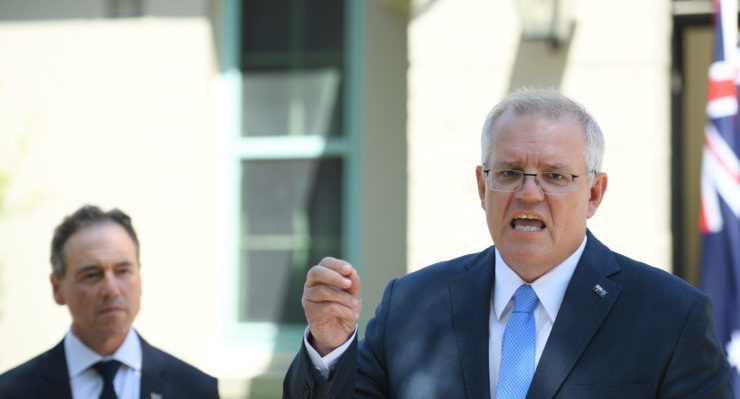
Almost one-third of adult Australians have indicated they’re unlikely to get the COVID-19 vaccine in the coming months as the number of blood clotting cases likely linked to the AstraZeneca vaccine rises to 19. Most people surveyed said they were waiting for more people to get vaccinated.
It’s a major concern, with experts flagging that Australia might not achieve herd immunity at the current rates of vaccination, pushing back Australia’s return to normality.
The government’s vaccine messaging has been criticised as mixed and unfocused. Comments made by Health Minister Greg Hunt amplified those concerns as he reminded Australians there will be different types of vaccines available later in the year.
“Right now we want to encourage everyone over 50 to get vaccinated as early as possible,” he said. “[But] as supply increases later in the year, there’ll be enough mRNA vaccine for every Australian.”
The wrong approach to take
Communicating risk isn’t easy. The exact rate at which a blood clotting condition is appearing after a dose of the AstraZeneca vaccine keeps changing. While the Australian government previously said it affects six in every 1 million vaccinated people, European data estimates it’s closer to one in 100,000. This is still considered a rare reaction to medication.
The Therapeutic Goods Administration (TGA) releases a weekly COVID-19 vaccine safety report, though last month abandoned data on the frequency of blood clotting per vaccinated Australian. It previously stated one in 295,000. Increasing numbers may be due to milder presentations as the general public become more aware of clotting symptoms.
Despite the public’s concerns, the government’s messaging has repeatedly focused on the benefit/risk ratio of getting the vaccine v catching COVID-19. This, Murdoch Children’s Research Institute Vaccine Uptake Group research fellow Jessica Kaufman tells Crikey, is the wrong approach to take.
“When you talk to people about the risks of going to ICU with COVID, it’s really not very powerful as a message when compared to even the very minor risks associated with the vaccines,” she said.
While encouraging Australians to line up for the jab, Prime Minister Scott Morrison often compares Australia’s situation with other countries, further highlighting the limited risk.
Kaufman said while the $23.9 million injected into the public information campaign to encourage Australians to get a vaccine was a good start, communication needed to be more tailored to individual communities, and there needed to be more consultation with experts.
The government has also been criticised for its secrecy around the vaccine rollout: while vaccination numbers and adverse reactions are released by the Health Department and TGA, the government has remained opaque around the number of vaccinations in residential disability care homes, along with information on the private contractors paid to support the rollout.
Punitive measures not appropriate
Morrison also flagged vaccine passports for domestic travel, highlighting the benefit of getting the vaccine — and adding a punitive measure for those who don’t.
This too has sparked mixed messaging and controversy. NSW Premier Gladys Berejiklian and Queensland Premier Annastacia Palaszczuk are both against the idea, with Berejiklian pushing for free movement among states and territories.
Discussions with the International Air Transport Association about digital vaccine passports began this week.
Kaufman said the government should focus on the positives of the vaccine in campaigns, as New Zealand and Singapore have done, focusing on large weddings, dancing and international travel and outcomes for a vaccinated country. She said setting a target date for reopening borders could also work as encouragement.
Australians need reassurance
University of Sydney clinical vaccine specialist Nicholas Wood is an advocate for a compensation scheme to pay out people injured by a COVID-19 vaccine.
“There should be some sort of injury compensation program to support these people who have to take time off work during the event — for treatment, management, recovery, and then for visits with medical staff for repeat scans and other appointments,” he told Crikey.
This would add a layer of security, especially for those in casual or sole-trader industries.
Wood doesn’t believe a compensation scheme would amplify the risk or fuel hesitancy. “You can’t open the paper every week without some sort of a story on the clots,” he said.
“People might look at the risk estimate and say, well at least I’m entitled to some sort of support.”








Crikey is committed to hosting lively discussions. Help us keep the conversation useful, interesting and welcoming. We aim to publish comments quickly in the interest of promoting robust conversation, but we’re a small team and we deploy filters to protect against legal risk. Occasionally your comment may be held up while we review, but we’re working as fast as we can to keep the conversation rolling.
The Crikey comment section is members-only content. Please subscribe to leave a comment.
The Crikey comment section is members-only content. Please login to leave a comment.